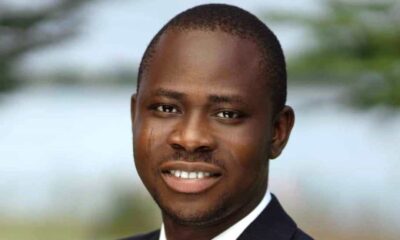Finance
CBN Governor, Godwin Emefiele risks arrest for short Naira Swap Extension


Still on the Naira notes swap, The House of Representatives Adhoc Committee, Has rejected the 10 days extension granted by the Central Bank of Nigeria (CBN) for the swap of old N200, N500, N1,000 bank notes.
In a statement released on Sunday, January 29, the Chairman of the Committee and the Majority Leader of the House, Alhassan Ado Doguwa, said the lawmakers will proceed and sign an arrest warrant to compel the CBN Governor, Godwin Emefiele to appear before the committee.
He said, The new naira redesign policy is capable of frustrating the forthcoming 2023 general elections. Recall that many Nigerians have complained about inability to access the newly redesigned notes.


The CBN had initially placed the deadline for the exchange of the old Naira notes for the new ones on January 31st . However, following the series of complains from Nigerians, the CBN governor, Godwin Emefiele, in a statement released on Sunday, January 29, announced that the deadline had been extended to February 10.
In its immediate reaction, the House of Representatives committee chaired by Doguwa rejected the extension, insisting that the CBN must comply with sections 20 sub 3, 4, and 5 of the CBN Act. “The 10-day extension for the exchange of the old naira notes is not the solution: We as a legislative committee with a constitutional mandate of the house, would only accept clear compliance with section 20 sub 3, 4, and 5 of the CBN act and nothing more.
Nigeria as a developing economy and a nascent democracy must respect the principle of the rule of law. And the House would go ahead to sign arrest warrant to compel the CBN Governor to appear before the adhoc committee.”
Doguwa said under his chairmanship, the committee would continue its work until it gets the demands of Nigerians addressed in accordance with the laws of the land.
He described the extension as a mere political gimmick to further deceive Nigerians and worsen their economic and social livelihood, insisting that the CBN governor must appear before or stand the risk of being arrested on the strength of legislative writs signed earlier by Speaker Femi Gbajabiamila.
READ ALSO: JUST IN: Ademola Adeleke sacked as Governor of Osun state












